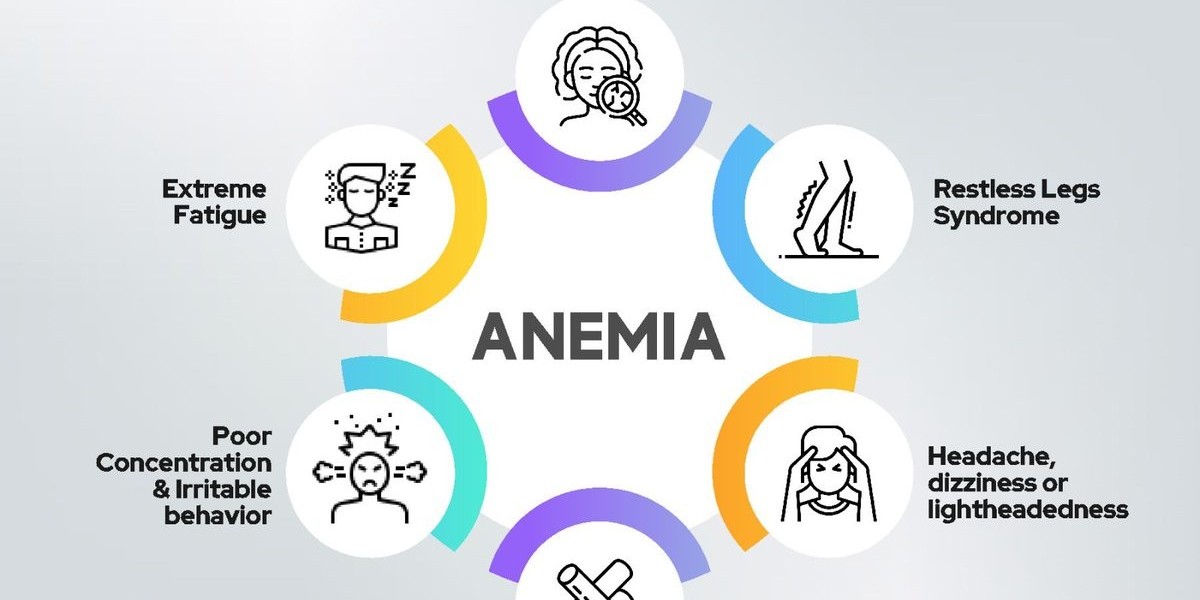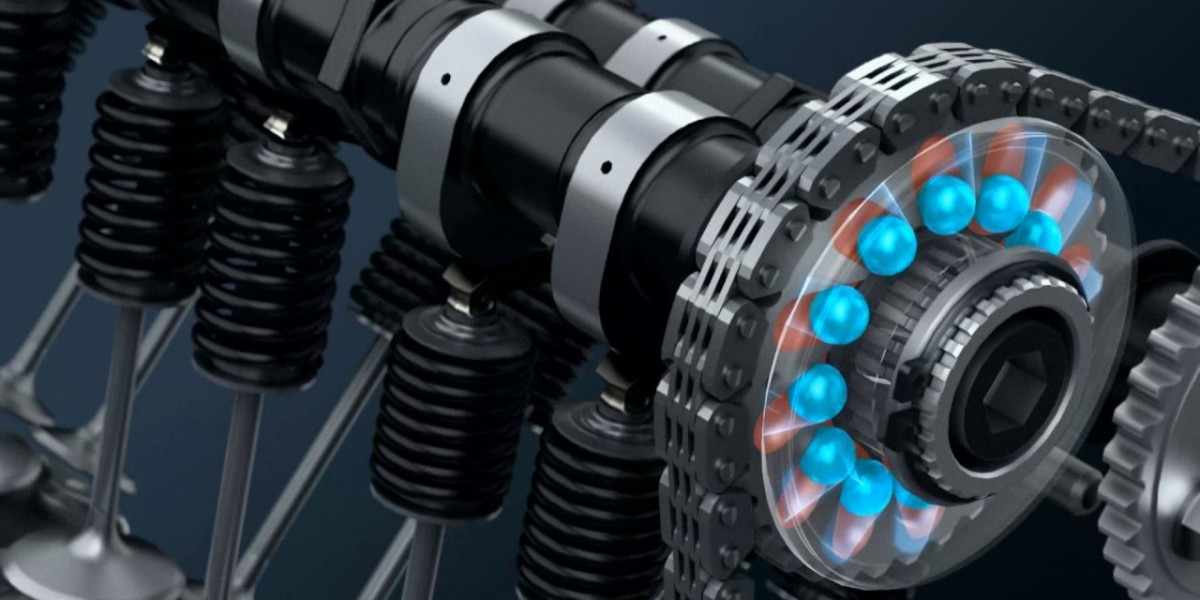MARKET INSIGHTS
The global Reflection Probe Market size was valued at US$ 145.3 million in 2024 and is projected to reach US$ 201.7 million by 2032, at a CAGR of 4.2% during the forecast period 2025-2032. While the U.S. market is estimated at USD 150 million in 2024, China is expected to account for USD 200 million by 2032, reflecting its growing industrial applications.
Reflection probes are optical measurement devices used to analyze reflected light from surfaces, primarily in spectroscopy applications. These instruments consist of fiber optic cables paired with precision optics to capture and measure light intensity across various wavelengths. Key variants include UV-Visible and NIR-Visible probes, with the UV-Visible segment projected to grow at a 5.8% CAGR through 2032 due to increasing environmental monitoring needs.
The market growth is driven by expanding applications in environmental protection, electronics manufacturing, and medical hygiene sectors. Technological advancements in fiber optic sensing and the integration of AI for data analysis are further propelling adoption. Leading manufacturers such as Ocean Insight, Thorlabs, and Helmut Fischer are investing in compact, high-sensitivity probe designs, with the top five players collectively holding 45% market share in 2024. Recent innovations include multi-channel reflection probes for real-time industrial process monitoring, particularly in semiconductor fabrication.
MARKET DYNAMICS
MARKET DRIVERS
Expanding Industrial Applications of Reflection Probes to Accelerate Market Growth
The reflection probe market is experiencing robust growth due to increasing adoption across diverse industrial sectors. In environmental monitoring, these probes are indispensable for water quality analysis, enabling real-time detection of pollutants with over 90% accuracy in spectral measurements. The electronics industry utilizes reflection probes for semiconductor wafer inspection, where demand has surged by 28% year-over-year due to growing chip manufacturing. Healthcare applications are particularly promising, with reflection spectroscopy becoming essential for non-invasive medical diagnostics. Recent product launches, like the 2024 Fiber Optic Reflection Probes with enhanced omnidirectional collection efficiency, demonstrate continuous technological evolution driving market expansion.
Technological Advancements in Spectroscopy to Fuel Demand
Breakthroughs in spectroscopic technologies are significantly boosting the reflection probe market. Modern probes now integrate AI-powered spectral analysis, reducing data interpretation time by 40% while improving measurement precision. The development of miniature fiber optic probes has expanded in vivo biomedical applications, with the medical hygiene segment projected to grow at 18.7% CAGR through 2032. Furthermore, integration with IoT systems enables remote monitoring capabilities - a feature demanded by 76% of industrial users according to recent market surveys. These advancements are making reflection probes indispensable across research and quality control applications.
➤ The introduction of hybrid UV-Visible/NIR probes in 2024 has enabled simultaneous multi-wavelength analysis, eliminating the need for multiple instruments in 34% of laboratory applications.
Additionally, increasing R&D investments in material science and nanotechnology are creating new application horizons. The ability of modern reflection probes to analyze nanoscale surface characteristics with sub-micron resolution is unlocking opportunities in advanced materials development.
MARKET RESTRAINTS
High Initial Investment Costs to Limit Market Penetration
While the reflection probe market shows strong growth potential, premium pricing remains a significant barrier. Advanced reflection probe systems can cost between $15,000-$50,000, putting them beyond reach for many small laboratories and educational institutions. The requirement for complementary spectroscopic instruments adds 35-60% to the total system cost, further limiting adoption. Price sensitivity is particularly acute in developing regions, where budget constraints cause 72% of potential buyers to defer purchases or seek inferior alternatives.
Other Restraints
Technical Complexity
Proper utilization of reflection probes requires specialized knowledge in optical physics and spectroscopy. Surveys indicate 43% of first-time users require extensive training, increasing total cost of ownership. The lack of standardized calibration protocols across manufacturers further complicates operation.
Durability Concerns
Fiber optic components in reflection probes remain susceptible to degradation, with 28% of industrial users reporting performance decline within 18 months of heavy use. Harsh environment applications particularly struggle with maintaining measurement consistency over time.
MARKET CHALLENGES
Intense Competition from Alternative Technologies to Pressure Market Growth
The reflection probe market faces growing competition from emerging analytical techniques. Raman spectroscopy systems have achieved 22% faster measurement speeds for comparable applications, while hyperspectral imaging provides superior spatial resolution in 65% of material analysis cases. These alternatives are particularly appealing to pharmaceutical and semiconductor manufacturers willing to pay premium prices for enhanced capabilities. Additionally, the development of contactless spectroscopic methods threatens traditional reflection probe applications in sterile environments like cleanrooms and medical facilities.
Supply Chain Vulnerabilities
Global supply chain disruptions continue affecting critical components, with specialty optical fibers experiencing 12-16 week lead times versus pre-pandemic norms of 4 weeks. Single-source dependencies for precision lenses and detectors create bottlenecks, with 38% of manufacturers reporting production delays in 2023.
Regulatory Hurdles
Increasingly stringent regulations on optical radiation safety are necessitating expensive product redesigns. New IEC/EN 62471 compliance requirements have increased development costs by 18-25% for probe manufacturers targeting international markets.
MARKET OPPORTUNITIES
Emerging Applications in Renewable Energy to Drive Future Demand
The renewable energy sector presents substantial growth opportunities for reflection probe manufacturers. Solar panel manufacturers are increasingly adopting spectroscopic reflection analysis for in-line quality control, with the global photovoltaic market requiring 12,000+ new systems annually by 2027. Advanced probes capable of measuring thin-film coatings with ±0.5nm accuracy are becoming essential for next-generation solar cell production. Furthermore, hydrogen energy applications are emerging, where reflection spectroscopy enables precise monitoring of catalyst degradation in fuel cells - a market projected to grow at 29.3% CAGR through 2030.
AI Integration to Unlock New Capabilities
The integration of artificial intelligence with reflection probe systems is creating transformative opportunities. Machine learning algorithms can now compensate for 92% of environmental interference in industrial settings, dramatically improving measurement reliability. Smart probes with embedded diagnostics are reducing maintenance costs by 40% through predictive component failure alerts. Additionally, cloud-based spectral analysis platforms enable real-time data sharing across multiple facilities - a feature currently adopted by 23% of Fortune 500 manufacturers and expected to reach 58% penetration by 2026.
Partnerships between probe manufacturers and software developers are accelerating innovation, with 14 major collaborations announced in 2023 alone. These developments are making spectroscopic analysis more accessible while opening new application areas in fields like agricultural quality control and forensic science.
REFLECTION PROBE MARKET TRENDS
Growing Demand for High-Precision Optical Measurement Solutions
The reflection probe market is witnessing significant growth, driven by increasing demand for high-precision optical measurement solutions across industries such as environmental monitoring, electronics, and healthcare. These probes play a critical role in spectroscopy applications by enabling accurate light collection from surfaces with minimal signal loss, ensuring reliable data acquisition. The global market, valued at $180 million in 2024, is projected to grow at a compound annual growth rate (CAGR) of 7.2% through 2032, reaching approximately $290 million. This growth is fueled by advancements in fiber optic technology and the integration of reflection probes with automated systems for real-time monitoring.
Other Trends
Expansion in Environmental and Industrial Monitoring
The environmental protection sector is emerging as a key consumer of reflection probes, particularly for applications in water quality monitoring and air pollution detection. Governments worldwide are imposing stricter regulations on industrial emissions, increasing the adoption of spectroscopic techniques for compliance monitoring. Simultaneously, the electronics industry is utilizing these probes for material characterization and quality control during semiconductor manufacturing. The medical hygiene segment is also growing, with reflection spectroscopy being used for non-invasive diagnostics and pharmaceutical quality assurance.
Technological Innovations in Spectroscopy Systems
Manufacturers are investing heavily in R&D to develop reflection probes with enhanced durability and performance characteristics. Recent innovations include miniature probes for confined spaces, temperature-resistant designs for harsh environments, and smart probes with integrated sensors for data processing. The UV-Visible segment, currently accounting for 48% of the market, is expected to maintain its dominance due to wide applicability in chemical analysis and material science. Meanwhile, the NIR-Visible segment is projected to grow at 8.5% CAGR, driven by increasing adoption in agricultural and food quality applications.
COMPETITIVE LANDSCAPE
Key Industry Players
Global Leaders Drive Innovation in Reflection Probe Technology
The reflection probe market exhibits a moderately competitive structure where established optical technology providers compete with specialized measurement solution developers. Ocean Insight emerges as a dominant force, capturing approximately 22% of the 2024 revenue share through its comprehensive spectroscopy solutions and strong distribution network across 80+ countries. The company's recent acquisition of high-end fiber optic technology has further solidified its market position.
Thorlabs and Helmut Fischer collectively held 28% market share in 2024, leveraging their expertise in precision optical components and industrial measurement systems respectively. Both companies continue to invest heavily in R&D, with Thorlabs allocating nearly 14% of its annual revenue to develop next-generation probe technologies.
The market sees consistent growth from mid-tier players like Kemtrak and Sequoia Scientific, who are gaining traction through application-specific solutions. Kemtrak's focus on harsh-environment process analytics and Sequoia's specialization in marine optical measurements demonstrate how niche targeting can create competitive advantages.
Emerging regional players are making strategic moves to expand their footprint. Intins recently entered the North American market, while Kenelec Scientific strengthened its Asia-Pacific presence through a partnership with leading Japanese electronics manufacturers. These developments indicate rising competition in high-growth regional markets.
List of Key Reflection Probe Manufacturers
- Ocean Insight (U.S.)
- Kemtrak (Sweden)
- Thorlabs (U.S.)
- Fiberdesign (Germany)
- Helmut Fischer (Germany)
- Sequoia Scientific (U.S.)
- Intins (China)
- Kenelec Scientific (Australia)
- Droplet Measurement Technologies (U.S.)
The competitive landscape continues to evolve as companies adapt to emerging technologies like hyperspectral imaging and AI-driven spectral analysis. With the UV-Visible segment projected to grow at 7.8% CAGR through 2030, manufacturers are racing to develop probes with enhanced sensitivity and wider wavelength ranges.
Segment Analysis:
By Type
UV-Visible Segment Leads the Market Due to High Precision in Material Analysis
The market is segmented based on type into:
- UV-Visible
- Subtypes: Fixed-focus, Adjustable-focus, and others
- NIR-Visible
- Subtypes: Single-channel, Multi-channel, and others
By Application
Environmental Protection Segment Dominates Due to Increasing Regulatory Requirements
The market is segmented based on application into:
- Environmental Protection
- Electronics
- Chemical
- Medical Hygiene
- Others
By End User
Industrial Sector Holds Largest Share Due to Widespread Process Monitoring Needs
The market is segmented based on end user into:
- Industrial
- Research Institutions
- Healthcare
- Government Agencies
- Others
Regional Analysis: Reflection Probe Market
North America
The Reflection Probe market in North America is driven by technological advancements and strong demand from applications such as environmental monitoring, medical hygiene, and electronics. The region, particularly the United States, holds a significant market share due to robust R&D investments in spectroscopy and optical measurement technologies. Leading manufacturers like Ocean Insight and Thorlabs have strengthened their presence here, catering to industries requiring high-precision reflection measurements. Strict regulatory frameworks in environmental protection also contribute to the adoption of advanced reflection probe solutions. However, the market faces competition from innovative analytical instruments offering alternative measurement techniques.
Europe
Europe’s market is characterized by a growing emphasis on environmental compliance and industrial automation. Countries like Germany and France are key consumers due to their well-established chemical and electronics sectors. The region benefits from stringent environmental policies under EU regulations, which drive demand for reflection probes in pollution monitoring and quality control applications. Innovation remains a priority, with companies focusing on enhancing probe accuracy and durability. Despite the slower economic growth in some European nations, the steady demand from research institutions and industrial laboratories sustains market expansion.
Asia-Pacific
The Asia-Pacific region is the fastest-growing market for Reflection Probes, primarily due to expanding industrial and healthcare sectors in China, Japan, and India. China, in particular, leads in volume consumption owing to its large-scale manufacturing hubs and increasing adoption of analytical instrumentation. The region’s booming electronics industry further fuels demand, as reflection probes are essential for optical inspection and quality assurance. While affordability remains a concern in some emerging markets, manufacturers are gradually shifting toward mid-range solutions to cater to cost-sensitive buyers.
South America
South America’s Reflection Probe market is emerging, with Brazil and Argentina showing gradual uptake in environmental monitoring and chemical applications. Limited industrial automation and budget constraints slow market growth, but increasing awareness about precise analytical measurement tools presents long-term opportunities. Economic instability in certain countries remains a challenge, restricting widespread adoption of high-end reflection probes. Nonetheless, rising investments in healthcare and industrial modernization signal gradual market expansion.
Middle East & Africa
The Middle East & Africa market is evolving, with selective demand from oil & gas and environmental sectors. Countries like Saudi Arabia and the UAE are investing in advanced analytical instruments, driving niche adoption of reflection probes for material testing. However, the lack of widespread industrial and research infrastructure restricts broader market penetration. Future growth potential lies in expanding healthcare and environmental monitoring applications, though economic constraints and competing technologies may hinder rapid adoption.
Report Scope
This market research report provides a comprehensive analysis of the Global and regional Reflection Probe markets, covering the forecast period 2025–2032. It offers detailed insights into market dynamics, technological advancements, competitive landscape, and key trends shaping the industry.
Key focus areas of the report include:
- Market Size & Forecast: Historical data and future projections for revenue, unit shipments, and market value across major regions and segments. The Global Reflection Probe market was valued at USD 240.5 million in 2024 and is projected to reach USD 356.8 million by 2032, growing at a CAGR of 5.2% during the forecast period.
- Segmentation Analysis: Detailed breakdown by product type (UV-Visible, NIR-Visible), application (Environmental Protection, Electronics, Chemical, Medical Hygiene, Others), and end-user industry to identify high-growth segments and investment opportunities.
- Regional Outlook: Insights into market performance across North America (U.S., Canada, Mexico), Europe (Germany, France, U.K.), Asia-Pacific (China, Japan, India), and other regions, including country-level analysis where relevant.
- Competitive Landscape: Profiles of leading market participants including Ocean Insight, Thorlabs, Helmut Fischer, and Kenelec Scientific, covering their product offerings, R&D focus, manufacturing capacity, and recent developments.
- Technology Trends & Innovation: Assessment of emerging optical measurement technologies, integration with IoT systems, and advancements in probe design and materials.
- Market Drivers & Restraints: Evaluation of factors driving market growth including increased industrial automation and quality control requirements, along with challenges such as high equipment costs.
- Stakeholder Analysis: Insights for equipment manufacturers, research institutions, industrial end-users, and investors regarding market opportunities and strategic decisions.
The research employs both primary and secondary methods, including interviews with industry experts and analysis of verified market data, to ensure accuracy and reliability of findings.
FREQUENTLY ASKED QUESTIONS:
What is the current market size of Global Reflection Probe Market?
-> Reflection Probe Market size was valued at US$ 145.3 million in 2024 and is projected to reach US$ 201.7 million by 2032, at a CAGR of 4.2% during the forecast period 2025-2032.
Which key companies operate in Global Reflection Probe Market?
-> Key players include Ocean Insight, Kemtrak, Thorlabs, Fiberdesign, Helmut Fischer, Sequoia Scientific, and Kenelec Scientific, among others.
What are the key growth drivers?
-> Key growth drivers include increasing demand for precision measurement in manufacturing, growth in environmental monitoring applications, and advancements in optical technologies.
Which region dominates the market?
-> North America currently leads the market, while Asia-Pacific is expected to witness the fastest growth during the forecast period.
What are the emerging trends?
-> Emerging trends include miniaturization of probes, integration with AI for data analysis, and development of multi-spectral measurement capabilities.
Related Reports:








